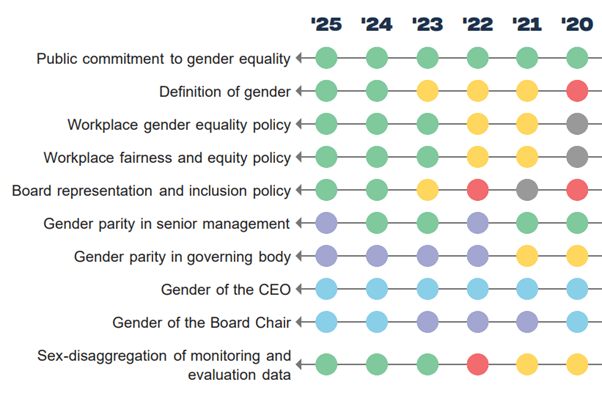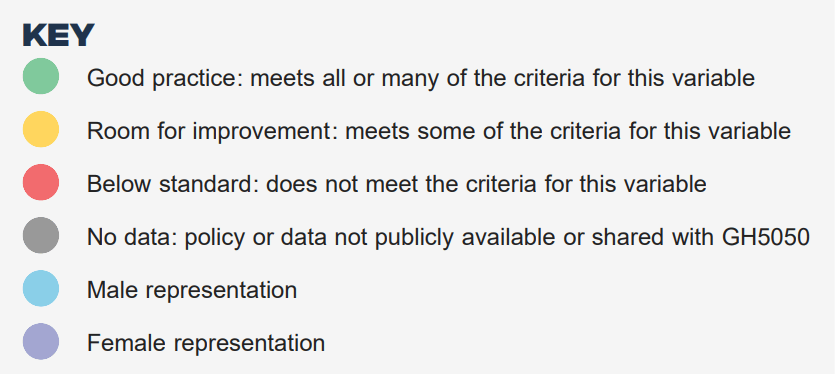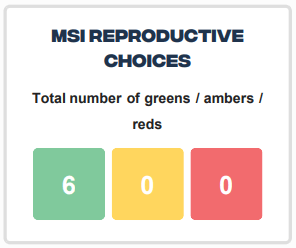
MSI has maintained its position as a ‘very high performer’ in this evaluation, amidst a measurable decline in public commitments and policies for gender equality, fairness, and equity across the wider sector.
This decline has unfolded against a backdrop of wider global challenges: democratic uncertainty, shrinking development assistance budgets, and rising opposition to gender justice, fairness and equity. Whilst the report recognises that many organisations may continue to uphold these values internally, with scoring based on publicly available data, it may not fully reflect the work happening behind the scenes.
The report acknowledges a few key qualities of MSI’s commitment to gender equality and inclusion:



Explore the full 2025 report here and look for MSI’s specific section in the search box here.